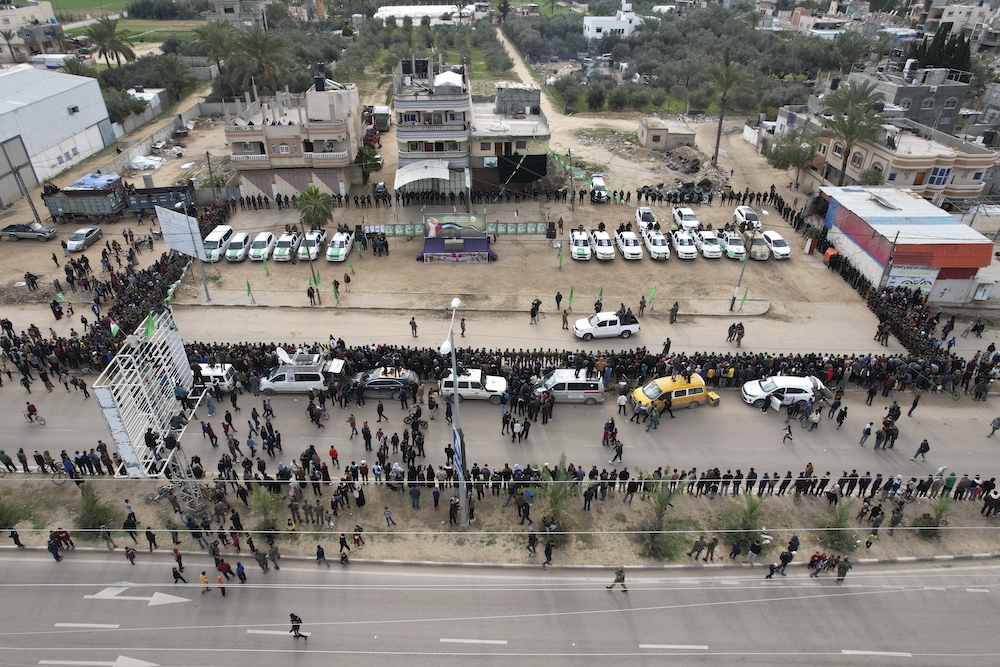CAIRO/DUBAI: Attacks around the Sudanese city of Al-Fashir have shattered a truce that protected it from a year-old war, leading to warnings of a new wave of inter-communal violence and humanitarian risks for 1.6 million residents crammed into the North Darfur capital.
Al-Fashir is the last major city in the vast, western Darfur region not under control of the paramilitary Rapid Support Forces (RSF). The RSF and its allies swept through four other Darfur state capitals last year, and were blamed for a campaign of ethnically driven killings against non-Arab groups and other abuses in West Darfur.
The fight for Al-Fashir, a historic center of power, could be more protracted, inflame ethnic tensions that surfaced in the early-2000s conflict in the region and reach across Sudan’s border with Chad, say residents, aid agencies and analysts.
Al-Fashir’s population includes an estimated half a million people displaced during that earlier conflict, when the army, assisted by Arab militias that evolved into the RSF, put down a rebellion by non-Arab rebel groups.
About half a million more people moved into the city during the war that broke out between the army and the RSF in the capital Khartoum in April 2023, as long-simmering tensions over integrating the two forces came to a head.
As the war spread to other parts of the country, local leaders brokered a truce in Al-Fashir, with the RSF confined to eastern areas of the city while the former rebel groups stayed neutral.
But the arrangement fell apart after the RSF took the town of Melit this month, effectively blockading Al-Fashir.
Witnesses say the army has reinforced supplies and troops, including through an air drop to its base in the city, unlike in other state capitals where soldiers quickly fled.
Two prominent former rebel groups, Minni Minawi’s Sudan Liberation Army (SLA) and Jibril Ibrahim’s Justice and Equality Movement, said they would also defend against the RSF.
Many non-Arabs in Al-Fashir are gripped with fear.
“We don’t know what to do,” 39-year-old resident Mohamed Gasim told Reuters by phone. “Al-Fashir is dangerous, but leaving is more dangerous.”
VILLAGES RAZED
Even before the truce collapsed, occasional skirmishes killed more than 220 people in Al-Fashir in the last year, according to Ismail Khareef, an activist in Abu Shouk, one of the displacement camps that dot the city.
Clashes on April 16 left at least 18 dead, Khareef said. Gunfire and projectiles, including from army warplanes, have fallen on homes, he and other residents say.
Since the start of the month, at least 11 villages on Al-Fashir’s outskirts have been razed, according to satellite imagery obtained by the Yale Humanitarian Research Lab. At least 36,000 have been displaced, the United Nations estimates.
Local activists and an SLA spokesperson blamed the RSF and allied militias, who have been known to use arson in past attacks, including in West Darfur. The activists said that survivors of the attacks reported around 10 people killed and that the attackers used ethnic insults.
The RSF denied attacking Al-Fashir and said it was careful to keep clashes away from civilians in the city, accusing the army and allied groups of attacking it on the outskirts. The RSF has previously denied responsibility for ethnic violence in Darfur.
The army did not immediately respond to requests for comment.
Al-Fashir itself has not had functioning running water or power lines for a year, said Awadalla Hamid, Darfur director for Practical Action, speaking to Reuters from the city, where few international humanitarians remain. Only one public hospital is functioning, while displaced people are crammed into schools and public buildings, he said.
Jerome Tubiana, an expert on Darfur and adviser to medical charity MSF, said all-out fighting “risks already complicating further humanitarian access, at a time where available data shows Al-Fashir is suffering of an extremely serious food crisis.”
SPILLOVER RISK
Since the war began, only small quantities of aid have entered Al-Fashir, the only army-approved conduit for shipments to other parts of Darfur. Residents say that though markets are functioning, the RSF’s control of the main road has caused prices for fuel, water and other goods to soar.
Recent tensions and violence around Al-Fashir have also raised concerns about a wider spillover.
The former rebel groups fighting alongside the army hail from the Zaghawa tribe, which reaches across the border into Chad, counting Chadian leader Mahamat Idriss Deby as a member.
Arab and non-Arab tribes like the Zaghawa have long clashed over land and valuable resources in Darfur, analysts say.
Complicating matters is the entrance of the forces belonging to Musa Hilal, a leading Arab commander from the early 2000s and rival of RSF commander Mohamed Hamdan Dagalo, known as Hemedti, despite hailing from the same tribe. A spokesperson confirmed a video of Hilal addressing forces in North Darfur on Monday, but said that it was too soon to say if the forces would join the fight in Al-Fashir or elsewhere.
“Even if there was a ceasefire between SAF and RSF this is way beyond them. There are scores being settled and tensions being renewed,” said Jonas Horner, an independent Sudan analyst.
Truce crumbles in Sudanese army’s last Darfur holdout
https://arab.news/bv86r
Truce crumbles in Sudanese army’s last Darfur holdout

- Al-Fashir is the last major city in the vast, western Darfur region not under control of the paramilitary Rapid Support Forces (RSF)
- Witnesses say the army has reinforced supplies and troops, including through an air drop to its base in the city

























